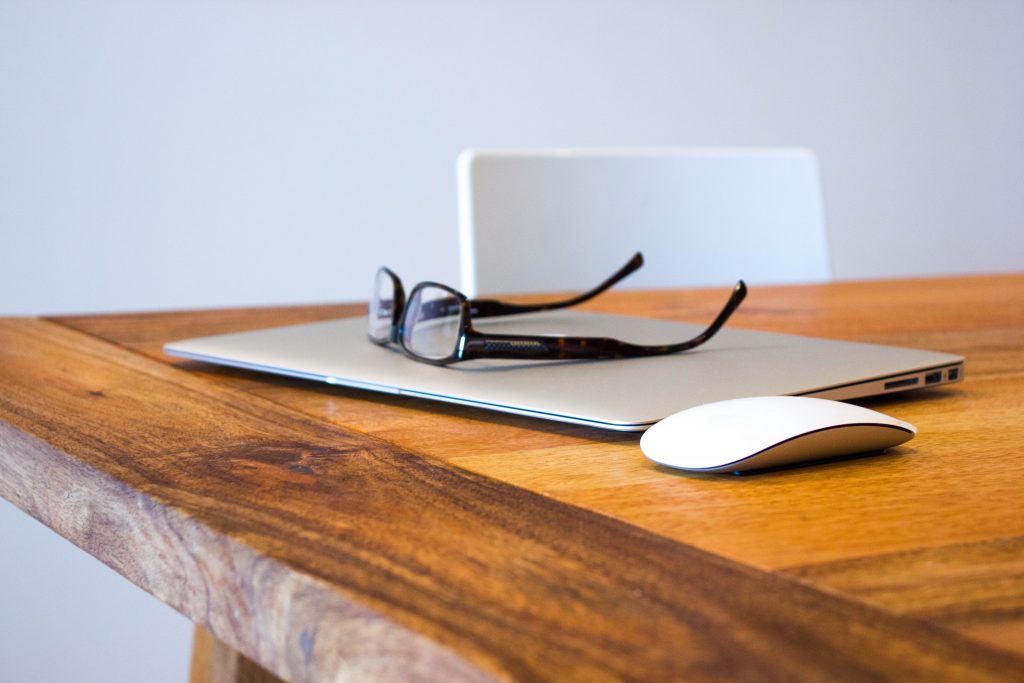The ultimate guide to self-care for Lockdown 2.0. SupportRoom can help you address your health anxiety.
We’ve been there, got the T-shirt, and seen it all before; but that doesn’t make it any easier to handle. Mental health anxiety and lockdown seem to go hand in hand.
Lockdown – for some – means jigsaws and baking and catching up on boxsets. But, for others, lockdown is isolation, loneliness, boredom, substance abuse, family tensions, and – potentially – domestic abuse.
Whatever Lockdown 2.0 means for you, you might need some help to get through it. And if you’re working from home, you probably need to learn to switch off at the end of the workday.
From meditation and yoga to planning and beautifying your space, our ultimate guide to self-care during 2020’s second Lockdown will help you come out the other end a more content and together person.
(Or less bored, at least!).
Self-Care Initiatives
Why do I feel so anxious?
You might be asking yourself why you feel so anxious. It’s not like this hasn’t happened before.
And this time, restrictions aren’t necessarily so strict (at least, at the time of publishing (Nov 2020) that was the case.
We got through lockdown 1, the virus seemed to diminish, and it felt like things were getting back to normal.
Then:
Cases returned – in spades.
So:
If you feel anxious for your mental or physical health, try out some of our self-care approaches.
What should I do today?
Human beings are creatures of habit. Most of us find comfort in familiarity. So, structuring your day around a considered and varied activity plan is one way to prevent the descent into depression and mental health anxiety.
Lockdown blurs the boundary between your work and your home life. And if you’re not currently able to work, structure is likely to have vanished altogether.
It’s tempting to lie about in bed all day and lounge about in those comfy PJs, but it’s dangerous territory.
Stick to a routine:
- Set an early alarm – 8 or 9am
- Get out of bed
- Have breakfast
- Get dressed
- Do some exercise (PARKLIFE)
- Create a list of things you need to do today
Create a List
Developing a practical routine helps us feel in control. Having a tick-list of jobs to do gives us purpose – and offers a sense of achievement when we look at the jobs we’ve completed at the end of the day.
A tick-list is your friend in lockdown. List every job; no matter how small. Perhaps you need to put a load of washing in the machine. Separate that into separate tasks:
- Gather clothes to wash in a basket
- Run the washing machine cycle
- Take the washing out of the machine
- Hang the washing out to dry
- Fold up the dried clothes
- Put clothes in drawers and wardrobes
It sounds super-simplistic (and it is). But any task can provide a sense of achievement.
SUPER-TIP – Always make the bed. It’s a simple job, and the first job of the day. If you get into a routine, you’ve completed task one before you’ve had your morning coffee.
It’s Time for a Fake Commute
One of the aspects of the “olden days” that you probably don’t miss is the daily commute to work; being crammed into carriages like sardines feels totally alien to us now.
But:
Love it or hate it, the commute was part of the day where you could listen to your tunes, read your book, or catch up on the news.
So, although you probably don’t miss the impracticality of the commute, it was a part of the day where it was just you: doing whatever you needed to do to prepare or unwind.
Hannah Coorg discovered that creating a “fake commute” has become a valuable part of her day.
She does all the things she used to do before leaving the house for work: showering, dressing, breakfasting, etc. But she goes for a run before work. It gets her out of the house, and helps her more clearly differentiate her morning routine from her working-from-home regime.
She does the same at the end of the day to divide her workday from her evening. She goes for a jog or a walk. Or a bike ride is an excellent way to feel the wind through your hair to blow out the cobwebs.
Then, when you arrive back home, you have the evening to look forward to.
And Hannah Coorg’s mental health anxiety has reduced as a result.
Practice a little gratitude
Gratitude meditation is a valuable practice that anyone can do. You don’t have to be a practised meditator; you just have to have five minutes to consider the things that you’re grateful for.
There are loads of guided meditations out there.
It’s good to practice gratitude meditation before you get out of bed in the morning: it’s a great way to make the first moments of the day positive.
And it’s simple: just spend five minutes considering the things in life that make your life worth living.
Here are some ideas:
- The smell of fresh coffee
- The smiley face of your friend or partner
- Your home
- An open fire
- Your cosy bed
- Spending time with your friends
- Your family
- A memorable day out
Focusing on the positives, rather than the negatives, is a surprisingly effective way of starting the day in the manner you intend to continue.
Mental Health Anxiety release: Radical Acceptance
Radical Acceptance is an approach that helps us accept the situation we’re in; even though we might resist it.
Resisting reality doesn’t make anything better – it just highlights the suffering.
So, while Radical Acceptance doesn’t CHANGE the situation we’re faced with, we either rally against it (and exhaust ourselves physically and emotionally) or we learn to accept the situation we’re in, and find our peace with that.
You could try this guided radical acceptance meditation.
Make Plans
We might be in lockdown right now, but it’s not going to last forever. We can still make plans. That way, we have things to look forward to in the future.
You’ve probably put a lot of things on hold this year. Perhaps now is a good time to consider what you might like to do in 2021. The pandemic WILL pass, so it’s good to prepare for that eventuality.
Perhaps you could consider a holiday you might want to book. You probably haven’t been on holiday this year, and you might have saved the money you would have spent. Think about making next year’s holiday extra special, using the money that you’ve saved from this year to go big for 2021.
Or maybe there are parts of your home you’d like to renovate or redecorate. Create Pinterest mood boards to help you choose your ideal design. Here are some ideas to get you started.
You might be considering a new hobby for 2021? Now’s a good time to do a bit of research.
Write out a bucket list of things you plan to do with 2021.
Create a self-care kit
When things get tough over the coming months, you’ll thank yourself for preparing a box of treats that bring comfort to your senses and help ease your mental health anxieties.
We’re not talking about a stash of chocolate that you hide underneath the floorboards, here. Think about items that calm you down when you feel overwhelmed.
Perhaps you have a favourite herbal tea or a blanket that makes you feel secure and safe. Maybe you have scented candles that calm your nerves when you’re having a bad day.
Create a self-care kit that you know is there when you need a little sanctuary and escape. Make mental health anxiety a thing of the past.
Divide your work-from-home life from your leisure life

Working from home brings lots of benefits, of course: no commute, no need to pull on that uncomfortable suit, and you’re home as soon as you drop the lid of your laptop.
But:
You might also find that your work creeps into your leisure time.
Make the most of the flexibility that working from home gives you. If you find that you’re working later than usual, take an extended lunch break, and do an online yoga or meditation class. Or go out for a jog in the middle of the day.
Perhaps, you could try some afternoon pranayama: it’s a great way to let go of the day and prepare for a relaxing, calming evening.
How To Combat Loneliness in Lockdown
Living with other people isn’t necessarily the cure to loneliness. If your flatmate is a nightmare and you need some space, you might find that your squirrel yourself away to avoid them.
So, loneliness can be a problem for everyone whether you live alone or not.
These are our tips for staying connected during lockdown:
Make Plans to Meet
In lockdown, we can’t go and physically visit our friends or family, and that can be tough. So, while we might feel isolated from each other, most of us have access to technology to help.
Plan a phone call or video call and make it an occasion. Have a cup of coffee nearby, so it feels like your regular routine. Maybe even think about eating lunch together; even though you’re at different locations.
Schedule an online chat and treat it as a date. Have a bath and get dressed up, just like you would if you were meeting in person.
Organise a quiz that gets a group of people together. It’s entirely possible to have FaceTime or Zoom parties and have a great night in. Create and share a playlist so that everyone’s listening to the same tunes. Plan to buy the same wine, so you’re sharing the experience. Play an online card game.
And remember: there are no queues for the loos and you don’t need to get a taxi home at the end of the night.
Write things down
If you’re struggling to process your emotions, it can be useful to write down your thoughts.
Consider starting a journal, or get into the habit of free-writing for fifteen minutes each morning. Journaling and free-writing is an excellent way of processing your thoughts and connecting with your emotional health.
Nobody else needs to see what you write – it’s not like you’re setting out to write your master opus. Writing your thoughts down on paper means that you don’t carry the emotional burden around with you.
You can save your writing in a folder or a book. Or ceremonially shred or burn the paper to let go of the feelings you’ve explored, putting them to rest. Of course, it’s not a great idea to burn anything inside – so if you don’t have outside space, shred it or tear it up.
Writing it down really does help you let go of the emotional baggage that’s holding you down.
Coping With Second Wave Health Anxiety
Consider Your Use of Social Media
Social media can be a god-send through lockdown. It’s a useful way of staying in touch with other people.
But:
Limit your exposure to social media; it can make you feel worse.
A lot of people tend to share only the good parts of their lives; filtering out the aspects that aren’t so great. Too much social media can drive us to believe that our lives aren’t as valid or worthy as other people’s.
It’s a slippery slope; so be mindful about getting sucked into a vacuum of people #livingtheirbestlives.
Unfollow people who make you feel bad – you have no obligation to be friends with that person you never really liked at school. And if you have friends who just seem to show off about how amazing their lives are – have a Follow holiday and mute their channel for a while.
There are lots of useful support groups available on social media, like the Support Room Facebook page or our Instagram account. Following useful groups and Pages will populate your timeline with positive updates that support you rather than “braggy” acccounts that make you feel bad.
Being mindful about your social media use can help reduce your mental health anxiety and feeling of social isolation.
Keep yourself busy at home
If there’s one good thing that comes out of 2020, let it be that you learn to love the four walls that surround and protect you.
Maybe you don’t have much spare cash, but a room makeover doesn’t have to cost the earth. It might be a case of adding a new colour with some affordable paint or a new cloth covering.
Get some ideas on decorating on a budget. Sometimes all you need to transform your space is a bit of imagination.
Decorating, spring cleaning (albeit autumn cleaning), redesigning a room layout: it’s all constructive time that benefits your mental health.
Making Your Relationship Work in Lockdown
Lockdown puts all relationships to the test; even the tightest couples had their ”moments” in Lockdown 1. Some couples were forced apart, while others were forced to breathe the same air, 24/7.
Everyone needs a bit of personal space; our tips for easing the strain on relationships during lockdown might just help.
Schedule time apart
Working from home together can be tough.
You might be lucky; perhaps you have two separate rooms to work in. Or maybe you have to share the same kitchen table, and you’re continually distracting each other.
Make sure that you plan some time apart. Go for individual walks, have a long soak in the bath, read a book in another room. Spend some time on you – a hobby like drawing or painting can be extremely beneficial. It doesn’t matter if you’re not particularly good at it; it’s the focus that painting brings that offers some valuable “me” time.
Or do something that benefits you both: prepare a delicious meal while the other relaxes in the lounge.
Practice a bit of compassion
You might be going stir-crazy – but so might they.
It’s useful to talk about your personal boundaries – it makes your relationship more robust in the long run.
Take some time to consider how they might be feeling – and give them space or support when they need it.
If you’re working from home at the same time, let each other know when you’ve got a noisy conference call. Or listen to your music through headphones rather than through the speakers.
Nobody wants passive-aggressive post-it notes – so consider your boundaries and give each other space.
Dealing with Lockdown 2.0 Health Anxiety
The first wave was scary; a nightmare made flesh. There were deaths and illness, and nobody knew what to do for the best.
And let’s face it: Lockdown 2.0 was probably inevitable.
The critical thing to remember is that our brave doctors and nurses know a lot more about COVID-19 this time around. Our valiant front-liners know how to treat the illness more effectively. And while death rates are rising, we need to try to keep our feet on the ground.
You can’t be responsible for the behaviour of other people. But you can be accountable for how you conduct yourself. Stick to the government guidance, and – together – we can beat the coronavirus.
How SupportRoom can help
SupportRoom is a digital, behavioural healthcare company, connecting clients with a network of licenced therapists.
Our web-based platform is simple and straightforward and super-convenient – accessible on the web or our mobile-first platform. Our therapies and web-based services are fully HIPAA-compliant and offer 24/7 support from qualified therapists.
Access our friendly, confidential services via text, video- or voice message at any time of the day or night; from anywhere with an internet connection.
SupportRoom offers therapy where you need it; when you need it: realtime treatment from skilled, experienced, qualified therapists.
Gain FREE access to Heartbeat
Get a free Heartbeat Survey.
Let us uncover the true state of your team’s wellbeing with a free mental health survey for your entire organisation.
Gain valuable insights to see how you can better support your team’s mental health and performance.
No pitch. No credit card required.



